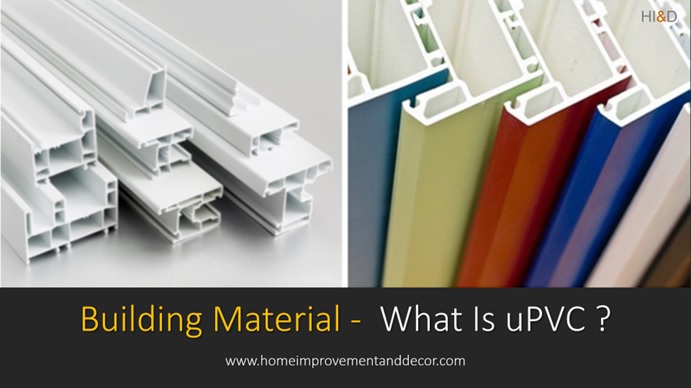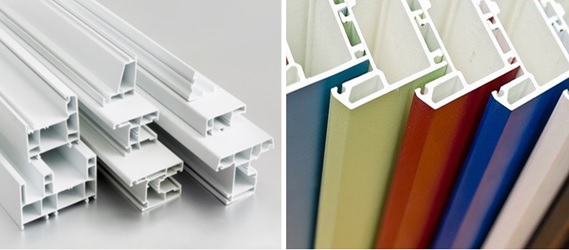
uPVC Material
uPVC Building And Construction Material Widely Used For Doors, Windows And Pipes.
uPVC stands for unplasticized polyvinyl chloride, which is a type of plastic material that is widely used for constructing doors and windows, pipes, and other building materials. Unlike traditional PVC, uPVC is not softened by the addition of plasticizers, which makes it more durable, long-lasting, and resistant to wear and tear.
uPVC is a popular material choice for building applications because it is lightweight, easy to work with, and has good insulating properties. It is also resistant to weathering, UV radiation, and chemical exposure, which makes it ideal for outdoor use. uPVC is available in a range of colors and finishes, and it can be easily recycled at the end of its life cycle, making it an environmentally friendly option.
uPVC Doors And Windows
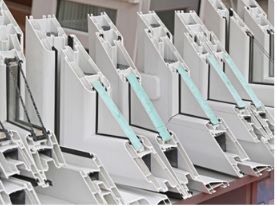
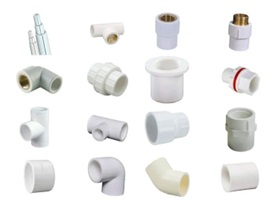
One of the key benefits of uPVC is its durability. Unlike other building materials, uPVC does not rot, warp, or corrode, making it an ideal choice for outdoor applications where it is exposed to harsh weather conditions. This makes it a popular choice for window frames, doors, and gutters, where it can withstand the effects of rain, wind, and UV rays from the sun.
Another benefit of uPVC is its low maintenance requirements. Unlike wood, which needs to be painted or stained every few years to maintain its appearance, uPVC requires only occasional cleaning to keep it looking new. This makes it an attractive option for homeowners who want to minimize their maintenance and upkeep costs.
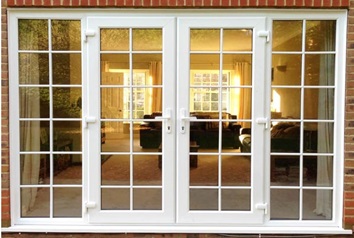
uPVC is also energy efficient. Its excellent insulation properties help to reduce energy costs by preventing heat loss in the winter and heat gain in the summer. This makes it a popular choice for building homes and commercial buildings, as it can help to reduce energy bills and improve energy efficiency.
In addition to its durability, low maintenance, and energy efficiency, uPVC is also highly resistant to fire and chemicals. This makes it a safe choice for homes and buildings, as it can help to prevent the spread of fires and withstand exposure to chemicals and other substances.
Finally, uPVC is a sustainable building material. It is recyclable and can be reused to make new products, making it an eco-friendly choice for builders and architects who want to minimize their environmental impact.
Overall, uPVC is a versatile and reliable building material that is widely used in the construction industry due to its many desirable properties and benefits. It is a safe, durable, energy-efficient, and eco-friendly option that can help to improve the quality and sustainability of buildings and homes.
uPVC Building Material
uPVC Chemical Composition
The chemical composition of uPVC, or unplasticized polyvinyl chloride, is made up of vinyl chloride monomers, which are polymerized to form PVC resin. The resin is then mixed with additives such as stabilizers, lubricants, and pigments to create the final uPVC material.
The main component of uPVC is PVC, which is a thermoplastic material that is created through the polymerization of vinyl chloride monomers. Unlike traditional PVC, uPVC does not contain any plasticizers, which gives it improved durability and resistance to wear and tear.
The additives used in uPVC can vary depending on the specific application, but they typically include stabilizers such as calcium-zinc, lubricants such as stearic acid, and pigments such as titanium dioxide. These additives help to improve the properties of uPVC, such as its resistance to weathering and UV radiation, and its ability to be colored and shaped into different forms.
Properties Of uPVC Material
uPVC, or unplasticized polyvinyl chloride, is a type of plastic that is often used in building and construction applications. uPVC is a versatile and reliable material that is widely used in the building and construction industry due to its durability, low maintenance, and excellent insulation properties.
Some properties of uPVC include:
- Durability: uPVC is highly durable and can withstand extreme weather conditions, including exposure to sunlight, rain, and wind.
- Low maintenance: uPVC requires very little maintenance and does not need to be painted or sealed like other building materials.
- Fire resistance: uPVC is highly fire resistant and does not easily catch fire or spread flames.
- Energy efficient: uPVC has excellent insulation properties and can help reduce energy costs by preventing heat loss in the winter and heat gain in the summer.
- Chemical resistance: uPVC is highly resistant to chemicals and does not corrode or degrade when exposed to acids, alkalis, or other chemicals.
- Sound insulation: uPVC is an effective sound insulator and can help reduce noise pollution in buildings.
- Recyclable: uPVC is a highly recyclable material and can be reused to make new products.

